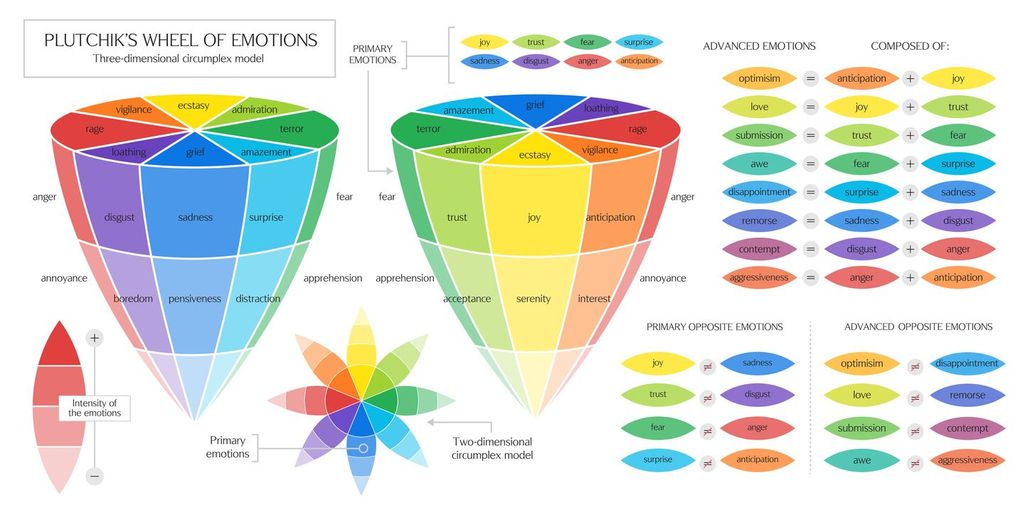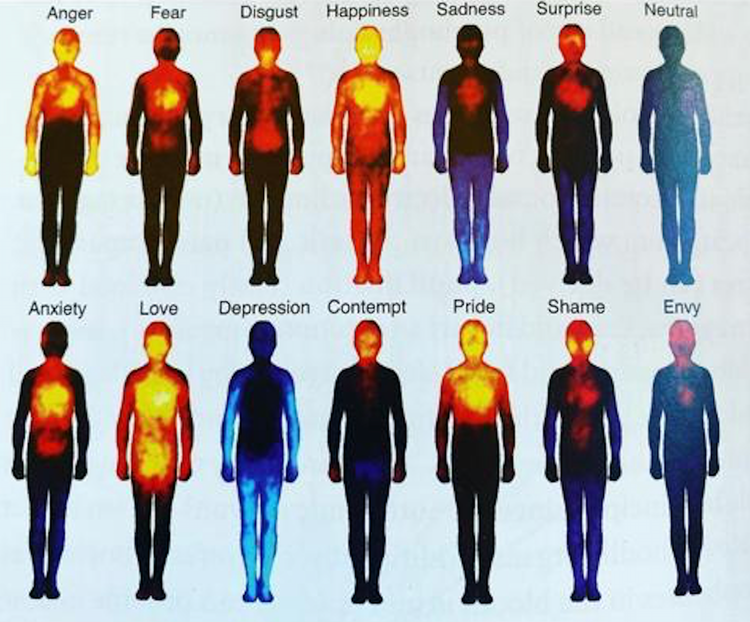BENEFITS
Everyone can benefit from this work, those who are debilitated by intrusive thoughts, emotional states and recurring issues and those who find it difficult to process emotions, often repressing or acting out their pain in the process.
By fully comprehending how acquired conditioning filters and distorts thinking and feeling, in terms of irrational fear, bias and confusion, we can free ourselves from its effects. This conditioning encompasses the beliefs and mind-sets accepted and absorbed from families, peers, society, media, culture and religion/spirituality.
The process focuses on how to think more clearly, not on what to think. By
observing, identifying and dismantling limiting and detrimental thoughts and emotional reactions, more refined thinking naturally emerges.
This is essentially a long-term and long-lasting approach which requires patience and understanding to fully grasp and implement. It is not based on the individual doing or becoming, so much as removing that which prevents them from fully being.
RESULTS
Metacognisance is about accepting and being comfortable in your own mind and body and interacting with clarity and presence..yet not by striving to be perfect or behaving perfectly in every relationship and situation.
It is not about idealism, obsessive goal-setting and quick fixes, nor framed in positive, provisional or destination thinking, i.e. when I do, get, reach…
Rather, the process is based on how to observe then reduce reactions and assimilate 'triggers' -essentially the wounds and scars which shape our life experience- so that we can fully heal and not be at the mercy of those stored memories.
The approach is designed to remove the discomfort, irrational fear and judgment that many attach to their emotions.
Through the release of historic emotions, there is a renewed ability to understand cognitive patterns and corresponding behaviour, and to better navigate previously challenging situations and relationships.
One-to-one sessions
Personal, tailored approach
Unique Approach
Online sessions and webinars
Thinking and feeling more clearly, shapes and reforms all aspects of life
After we help you uncover the programs holding you back,
we'll work together to release them.
EMOTIONS
Emotional intelligence
Learn how to:
-constructively express and manage the full spectrum of emotions.
-become more aware of emotional bias and how it impacts rational reasoning.
-tell the difference between instinct, socially constructed emotions and automatic emotional reactions.
-recognise the influence of thoughts on the creation and continuance of emotional states, eg guilt, shame and resentment.
-override the tendency to avoid, ignore and repress emotions.
- develop healthier emotional responses as opposed to reactions.
- navigate difficult and chronic emotional states for more effective long-term mood management.
Emotional Processing
Many of us have learnt to suppress certain emotions which were not encouraged or allowed in early upbringing and environments, or through trauma shutdown.
In many cases these natural human responses are often judged as wrong, bad or negative and over time we may learn to ignore, hide or override them.
Psychologically, suppression may also lead to the development of subpersonalities or personas, parts of ourselves we create to ‘protect’ the pain or shame.
Often this vulnerability is covered up mentally through excessive logic or physically through
medication or addiction, quick-fix methods to numb the pain, which can lead to even more problems and more pain.
The emotional release work really allows these thoughts, feelings and complexes to be fully processed and addictive habits and tactics to be understood compassionately as a way of trying to meet fundamental human needs.
Emotional intelligence is vital within our larger social structures too, in a world where the focal emphasis is on power, money and competition, the results often point to a rise in separation, stress and isolation. Seeking success, in an external sense, can ultimately be unfulfilling if we overly identify with our projects and purpose at the expense of our innermost needs.
Exploring and connecting to emotions as physical phenomena within the body free from fear of judgment, criticism, punishment or rejection
improves confidence in understanding and coping with them. Releasing difficult or intense emotions is usually the clearest indication of where change is most needed and often uncovers
the root of longstanding issues.

The holistic model
Mind, body and emotion are never really separate as the autonomic nervous system acts as a network of communication between all three. The heat map below charts the activation of bodily sensations associated with different emotions using a unique self-report method
(2013 Neuroscience study, Nummenmaa, Glerean & Hari)
These states are relatively hardwired to include emotions and bodily responses, variation only occurs in how they are expressed or verbalised.
Unfortunately these emotions don’t just disappear, instead they can become lodged or 'stuck' in the body, evidenced more and more in mind-body medicine to potentially lead to much greater damage, including development of complexes, neuroses, exhaustion and chronic health issues.
Often the origin of thought patterns and belief structures keeping individuals stuck in depression or other chronic states of fatigue and anxiety can be uncovered and dismantled through these emotional states. Identifying triggers and patterns of acute emotion and differentiating these from moods which reflect chronic or longer term emotional states, usually based on a set and repetitive narrative, is vital to prevent development of further issues -healthy and constructive emotional release is essential groundwork for physical health, fitness and mental well-being.

THOUGHTS
Consider thoughts as essentially physical and material phenomena, contained and happening in the brain in an electrical and chemical form, then stored and shaped in the form of memories.
BENEFITS OF UNDERSTANDING YOUR THOUGHTS (origins,programs and patterns )
- Observing these psychological structures leads to a greater ability to inquire and reason without the need to form opinions, illusions and delusions
- Disentangling beliefs and concepts from a sense of self, in image and identity leads to greater peace of mind and constructive reform in behaviour and life circumstances.
- This in turn reduces compulsive tendencies to control, judge, attack, defend, compare and compete.
- Understanding how fear moulds beliefs allows us to challenge and remove associated false hopes and expectations which often lead to disappointment, resentment and sorrow.
- Interacting with others as they are, increasing empathy, listening without bias or pre-judgment enables more rational, resonable thinking and harmonious connections.
BELIEFS
Metacognisance assists in creating distance and objectivity over thought forms and belief systems so that they can be clearly identified, observed and understood.
In this way clarity and control is gained over intrusive, unwanted, limiting and outworn thoughts, allowing for clearer thinking to develop.
Beliefs can be considered as illusory constructs of the mind, programmed in the brain’s neural pathways, replicated and repeated as patterns which in time and with practice can be questioned, challenged and deconstructed.
While some beliefs contribute constructively to forging bonds and sustaining communities, in terms of habits and traditions, many do exactly the opposite.
Through questioning the need to believe, the likelihood and problem of cognitive dissonance is also greatly reduced - opposing beliefs, behaviour or character traits.
A belief is an idea, not reality or a person, group or race, formed as a means of creating apparent certainty, understanding and explanation of our existence, mainly through fear of uncertainty or not knowing!
They bear little resemblance or relation to 'what is' in actuality.
CONCEPTS
Metacognisance takes us through a vital process of understanding our relationship with concepts and how we have erroneously based our experience of reality on them.
As we shed new light on these symbolic notions and really come to understand their innate limitations, we can live through more direct and fulfilling experience. Some of the concepts considered include:
· Purpose
· Perfectionism
· Freedom
· Desire
· Identity
· Self
· Tribe
· God
As we free ourselves from these cognitive fallacies, our experience of life emerges through observation, clarity and presence, greatly enhancing our own contentment, relationships with others whilst vastly improving our judgment faculties and decision-making abilities.
KNOWLEDGE
Knowledge and learning are two different things. Thinking and thought are two different things.
It is, of course necessary to give knowledge its place as a factual, informative and
essential component of human development. Yet to employ it as a cognitive function only
clouds our judgment and decision-making faculties with rigidity, opinion and bias.
Before just accepting what we see, read and hear, can we take that essential pause to
think? ie, learn through observing interaction with our natural environment and the people in it,
and to notice how our brains interact with the information presented.
Can we actually relate to, process and observe without the tendency to judge, define, confirm or deny, based on what we already know?
Clear thinking requires the dismantling of all we know and think we know, only then we can become more aware of how we are receiving and interfacing with the information fed to us constantly.
In order to truly learn from the past and apply it in the present we must employ effective skills of observation, exploration and understanding so that we do not rely on narratives
programmed in rigid education systems and early upbringing. This in turn can eliminate fear or resistance to learning from another perspective and in an original way.
SELF
What we refer to as self can be understood as a construct, created mainly through early and formative years as a means to attain approval, acceptance and apparent safety.
Even though this image as a construct of the past may now limit, damage, deceive us, or outgrow its use, we often cling to its illusory sense of psychological safety and familiarity and live in fear of losing it.
The self may be understood as the sum of all the information, memories and experiences we have acquired throughout our lives and therefore inevitably interferes with our clarity of perception and comprehension of thought processes.
Metacognisance aids in releasing the need for and attachment to a self-image, persona or particular identity, freeing us from the need for external validation (praise or criticism). Over time the concept or image of self fades, giving way to a deeper sense of inner fulfilment and contentment.
Work on the self opens up profound and powerful insights, which can lead to breakthroughs in perfectionist thinking, people-pleasing and ‘imposter syndrome.'

Relationships
What if we understand a relationship as an encounter between individuals which allows and assists each one to see themselves more clearly?
Relating
The approach focuses on breaking down programmed and unhelpful definitions of relationships, shifting attention instead onto how we are ‘relating.’
- Generate a clearer understanding of beliefs and programs around love, romance, sex - attractions and repellents in relation to others and uncover the real reasons for the making and breaking of these bonds.
- Understand how current modes of interaction and communication in friendships and intimate relationships are shaped by early familial and social bonds and reflect the patterns, styles, strength and weaknesses contained within those.
- Identify programs based on fear of lack, loneliness or desire enabling ways to find inner worth, respect and wholeness first.
- Recognise and deprogram outworn and unhealthy attachments to self-image, ex-partners and memories.
- Develop more empathy -shift from self-absorption into more active observing, listening and understanding of others to foster more meaningful connections.
- Let go of patterns of personalising others' words and actions and projecting thoughts and feelings onto others.
- Reduce the dependency and expectation on others to provide or make us happy, fulfilled or whole.
- Create better friendships and intimate relationships, more fully and consciously enjoyed, relating to others as they are, not as we imagine or wish they would be.
- Attract others based on compatibility, not on exchange for what they do or give us, but how they enhance, add to our lives and support our growth.
Mirroring
As humans are social creatures by nature, our contacts and connections allow us to grow and work on those aspects we value, like or dislike in ourselves as they are reflected or highlighted through interaction with others (mirror neuron research and development is now bringing a clearer understanding of how humans actually empathise with each other).
We can choose to fear, avoid, deny or reject these aspects, or accept them as a means to grow, to understand who and what we are more clearly, and to deepen our connections in the process. As partners and friends are continuously mirroring back to us, we too act as reflections for their awareness, understanding and growth.
Metacognisance takes us beyond labelled attachment styles into a more holistic view of challenging why we may think that we need another person or partner to feel whole in the first place.Through understanding the mutual benefits and sacrifices created and modelled in our early family and social connections, awareness of how these ties are moulded by and based on unspoken terms of value and exchange, allows each individual to neutrally assess their relationships and make more constructive decisions based on their actual needs.
Less dependent, toxic, demanding and resentful relations arise giving way to healthier bonds, enhancing each person as an individual first. We may have to break down the conditioned and mostly unrealistic expectations we place on each other as rescuers, fixers, heroes and lovers.
This in turn reduces the common fears that prevent most people from leaving toxic or stale relationships, to be alone or to enter into new ones, from settling for what they know, even if it is unfulfilling, incompatible or abusive, to staying for financial reasons, convenience, misguided loyalty or obligation, children, approval, image or fear of being alone.
By working through issues individually, changes and choices can be made in commiting or recommiting to relationships and friendships from a fresh perspective. Experience has shown this to be more effective than working on the relationship itself as it is this 'unit' which contains and perpetuates the problematic issues in the first place.
By targeting and breaking down the particular irrational fears keeping them trapped or confused, each partner can come to understand how and why communication, connection and intimacy operate as they do within their relationship unit.
The two most common fears of
getting hurt and
being rejected can also then be understood and processed from a new perspective.
As we eliminate the superficial reasons underlying relationship bonds, a new understanding develops and clearer choices can be made. This may allow ailing relationships to recover too as each person is there through a sincere choice, so even bridges rebuilt can last. Fears and doubts
are taken into account and dealt with effectively, so each individual can be clear and honest about their real needs and reasons for staying in a relationship, or if need be, leaving to pursue their own happiness.
